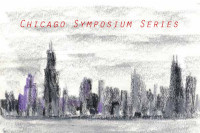University of Iowa
Intellectual and practical skills such as problem solving, communication, and teamwork are commonly listed as desired outcomes in STEM undergraduate curricula (AAAS, 2009; National Research Council, 2012, 2013). These skills, along with information processing, critical thinking, and management are not only useful for students as they enter STEM fields, but they are also critical for students to be successful learners within active learning classrooms. While the development of these skills is often a general goal for courses and programs, the cultivation of these skills is seldom explicitly discussed or assessed in the classroom.
The growth of students’ practical skills is enhanced when instructors create explicit learning goals that include the development of these skills, provide learning experiences that cultivate these skills, and then assess and provide feedback to students on their progress. In active learning environments, practical skills can be developed and made visible through student assignments and tasks. Evaluating student artifacts and interpersonal interactions for evidence of practical skills provides a means to incorporate the assessment of these skills into regular classroom practice and gives direct feedback to students on their development. While the AAC&U and others have developed resources related to practical skills for program or course assessment, these materials were not designed to give formative feedback directly to students. The ELIPSS (Enhancing Learning by Improving Process Skills in STEM) project has assembled a team of STEM faculty across disciplines and spanning a range of institution types to develop, validate, and implement rubrics to assess evidence of students’ practical skills in both student artifacts and interactions. Moreover, the ELIPSS rubrics provide timely feedback to instructors regarding how well their current practices are promoting skill-based learning goals. In this session, work highlighting strategies for promoting skill development in the classroom, including novel feedback rubrics and strategies for their classroom use in assessing practical skills will be presented.
Renée Cole is a Professor of Chemistry at the University of Iowa. Her research focuses on issues related to how students learn chemistry and how that guides the design of instructional materials and teaching strategies as well on efforts related to faculty development and the connection between chemistry education research and the practice of teaching. She is an Associate Editor for the Journal of Chemical Education and has been a co-editor for two books focusing on chemistry education research. She is a Fellow of the American Chemical Society (2015) and was named as a CLAS Collegiate Scholar in 2018. She was awarded the Iowa Women of Innovation Award for Academic Innovation & Leadership (2014), the University of Central Missouri College of Science & Technology Award for Excellence in Teaching (2010), and the Missouri Governor’s Award for Excellence in Education (2009).

